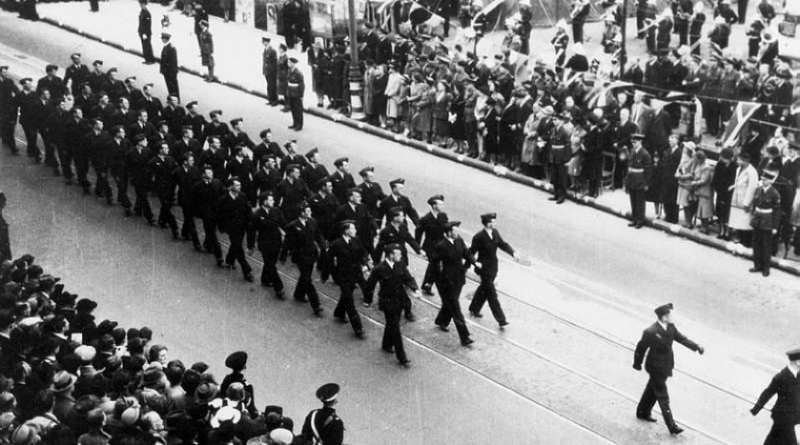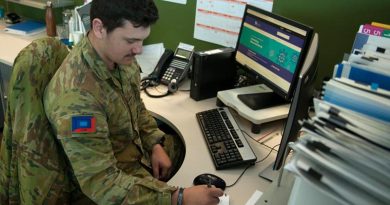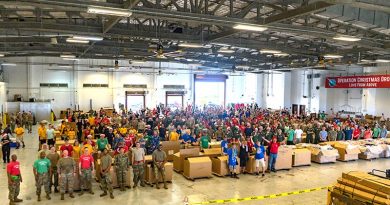80th anniversary of Victory in Europe

On Tuesday May 8, 1945, British prime minister Winston Churchill made an announcement: The war was over and the Allies had won.
CAPTION: 10 Squadron marches in a Victory in Europe Day parade on May 9, 1945, in Plymouth, United Kingdom. Story by Rosalind Turner.
Spontaneous celebrations broke out around Australia with crowds waving flags, shouting, laughing and singing. It became a significant date for us to remember and reflect on the important role of many Australians across the European theatre of war.
After almost six years of war, on May 7, 1945, an unconditional surrender was signed by the German High Command, taking effect from midnight on May 8. The day was proclaimed as Victory in Europe Day, or VE Day, by the Allies, and as news of the German surrender was shared, people marked the victory with street parties, dancing and singing in towns and cities across the globe.
VE Day was largely celebrated throughout Europe and the United States. Celebrations also took place in Australia, but were more reserved as we remained engaged in war against the Japanese in the Pacific.
While Australian troops were still fighting, many thought it was inappropriate to celebrate in any grand way. Victory in the Pacific Day, or VP Day, was more largely recognised by Australia on August 16 that same year, following the surrender of Japan.
Still, the role Australian forces played in Europe during World War 2 was undeniable, with nearly one million Australians serving and some 10,000 Australians making the ultimate sacrifice. A further 8000 became prisoners of war.
So, while some battle fronts were still to be won, many at home naturally welcomed the news of victory as it was reported in newspapers. At the time, churches held thanksgiving services and, on May 9, 100,000 people attended a service at Melbourne’s Shrine of Remembrance.
Frances Mulford, who served in the Women’s Auxiliary Australian Air Force during World War 2, remembered that the first VE Day was the culmination of “six years of horror, and yet so wonderful in friendship, helping, giving and talking”.
She had witnessed the bombing of Sheffield in the United Kingdom, lived for 18 months in wartime London, one of her friends had been killed by a sniper when crossing the Rhine, and another had both legs blown off but was still able cheat at cards with a smile on his face.
Today, 80 years later, like many other days of significance throughout the year, VE Day is marked with commemorative ceremonies and services across Australia. It remains an opportunity for veterans and their families to reflect on the legacy of those who fought in World War 2 and commemorate the importance of the part they played.
The signing of papers that ended the war not only signified the end of long-standing battles and violence across Europe, but it also meant the return of servicemen to their families, liberation for some countries from their foreign occupation and, more broadly, a new chapter for democracy in many European countries.
These factors are still embraced today as we continue to remember and commemorate VE Day and all those who served in World War 2.
.
.

.
.





